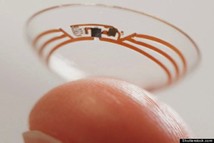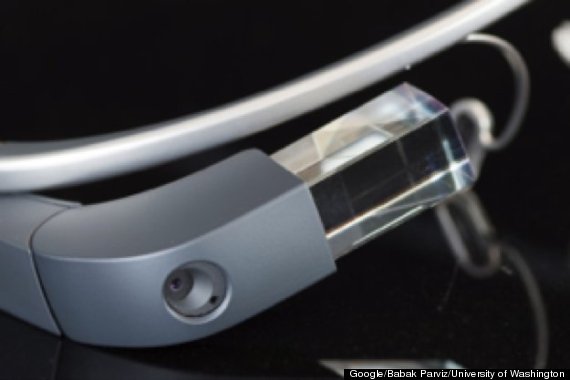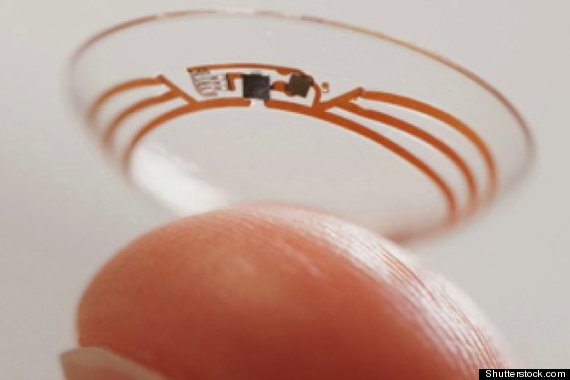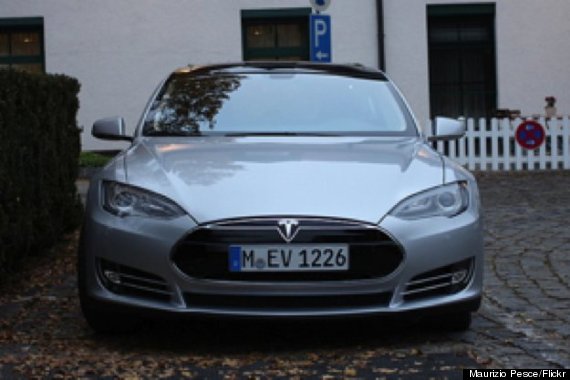/ News

The 8 Most Game-Changing Innovations Of 2014
As the year draws to a close, it’s worth glancing over our shoulder. What technologies and themes were brightest in 2014? Read on. (And keep in mind, attempting such a summation is ambitious to the extreme -- let us know what we missed!)
Illumina Breaks DNA Reading 'Sound Barrier'
In January, Illumina announced that their latest DNA sequencing machine can transcribe 18,000 human genomes a year for $1,000 each -- down from hundreds of millions a decade ago. The $1,000 genome enables broad genomic studies that may yield insights into the origins of disease. To date, some 225,000 genomes have been sequenced, and genomic pioneer Craig Venter believes we’ll sequence 5 million by 2020. Next steps include perfecting intelligent software to analyze all that data.

SpaceX Falcon 9 launch
Mars Ambitions, Reusable Rockets, and 3D Space Printers
According to Elon Musk, billionaire space entrepreneur, humans have to become a multi-planetary species if we're to survive. Musk hopes to begin colonizing Mars in the 2030s, but we’ll have to first reduce the cost of space travel. He believes reusable rockets, which the firm began testing in 2014, may slash launch costs by a factor of 100.
Beyond cutting cost, space explorers need greater independence from the ground. Singularity University space startup, Made In Space launched, installed, and began testing the first 3D printer in orbit this year. Astronauts will use the printer to make tools and parts -- kicking off space manufacturing and setting a 3D printing precedent for future space explorers.
Wearables Struggle, Virtual Reality Attracts Big Bets
Tech is officially searching for the next big computer interface, the next smartphone revolution.
Despite high expectations, Google Glass struggled to find its footing. Glass is half price on eBay, lost its lead developer (and others), app developers are losing interest -- and even Sergey Brin forgot to wear his at a big tech event.

Google Glass
Though Glass is finding niche uses (hospitals, for example, are adopting Glass for use by surgeons), the lesson seems to be miniaturization isn't sufficient for the mainstream. Design and practicality matter. Glass may need a redesign, a must-have use, or both.
Other wearables also continued their search for the golden formula. Though everyone seemed to release a smartwatch, none wowed. A recent poll found only 20 percent of respondents want a smartwatch. The most common reason (51 percent) folks aren't interested? They don't see the point.
Apple weighed in with the much-anticipated Apple Watch. It's expensive and isn't particularly novel, though well designed. Due out next year, the Apple Watch's success remains uncertain.
Meanwhile, thanks to its virtual reality Rift headset (still under development), 18-month-old Oculus was acquired by Facebook for a whopping $2 billion. Google made its own VR contribution -- a stripped down, smartphone-based cardboard headset -- while Oculus worked with Samsung to finish its more polished smartphone-based Gear VR goggles (now on sale).
Will Oculus release their eagerly awaited consumer VR goggles in 2015? It's unclear, but many people, from game developers to filmmakers, are already anticipating the impending VR revolution.

Google glucose monitoring contact lens
Body 2.0: Drop-of-Blood Diagnosis and Skin-Based Stem Cells
Portable health devices are approaching the Star Trek tricorder in size and cability. The XPRIZE Nokia Sensing XCHALLENGE winning device, rHEALTH, is a handheld machine that can diagnose hundreds of diseases using 1,500 times less blood. Cheap, regular testing may help doctors catch and treat disease before it’s too late.
And devices may shrink more. Google, for example, unveiled experimental contact lenses to measure blood glucose in diabetics.
Regenerative medicine gained steam too. Once the poster child for controversy, stem cells need no longer be sourced from embryos. Cutting-edge techniques that coax normal skin cells into pluripotent stem cells -- which are able to become any other cell and may help regenerate damaged tissue -- began human trials in patients with macular degeneration in 2014.
3D Printing Moves Past Peak Hype, Approaches Real Revolution
Consumer 3D printing hype hit fever pitch last year. It seemed at-home replicators would soon grace the average desktop. The hype was driven by real advances -- plummeting costs and big box store offerings—it just overshot the mark (as it tends to). Most consumer printers still lack resolution, only print plastic, are slow, and don't have a killer application.

As is often said, in 3D printing—complexity is free
Perhaps 3D printing companies benefitted from, then got burned by the run-up in expectations. After a steep climb, the stock prices for market leaders Stratasys and 3D Systems took a hit in 2014, down 41 percent and 70 percent respectively (as of this writing).
Still, analysts believe 3D printing (hardware, software, and materials) will grow fast in coming years. Industrial printers are more precise, use diverse materials, and can make multi-material, multi-color objects.
While practical 3D printing for consumers remains elusive, industry is finding the tech real, useful, and even revolutionary. Boeing, for example, now 3D prints 300 different airplane parts for as little as half the traditional cost. And in medicine, surgeons are 3D printing custom surgical implants (even an entire skull) and surgical guides to make their work better planned and more precise.
The Robots Are Coming: Drones, Driverless Cars, and Space Probes
Today's drones with basic AI onboard are cheap, self-stabilizing, and can even follow you with an HD camera. The cheapest mini drones can do flips off your palm for $30. Drones are already aiding law enforcement and the military, and depending on regulations due this month, may one day be big business, delivering a six-pack of beer or online orders.

Tesla Model S
Google’s driverless cars hit 700,000 miles accident free, graduated from highways to city streets, and new models did away with the steering wheel and gas and brake pedals. Big automakers stumbled over each other to announce their own robot car program.
Not one to be outdone, Elon Musk said Tesla will offer highly-automated electric cars next year. He expects in five or six years "we’ll be able to achieve true autonomous driving where you could literally get in the car, go to sleep and wake up at your destination."
Elsewhere, robots threatened to disrupt fast food, ran around Amazon warehouses fulfilling holiday orders, picked peppers on the farm, began serving customers at hardware stores, and across the solar system, hitched a ride on a comet, and prepared to explore icy Pluto.
Artificial Intelligence Advances, Fuels Controversy
Not so long ago, artificial intelligence was a word to be avoided --now it’s back in vogue.
Narrow AI, the kind that learns and performs specialized tasks, doubled its ability to recognize images this year. IBM announced a new brain-inspired chip and invested $1 billion in its Jeopardy-champ AI system Watson. Siri’s inventors funded a project to develop a next-gen virtual assistant to handle the tasks Siri (and others) still struggle with. Google, Facebook, and others continued collecting AI researchers like baseball cards. And algorithms broke news before humans.
Meanwhile, still-distant general artificial intelligence (think Hollywood AI) kicked up controversy in a book by Nick Bostrom. Bostrom argued superintelligent AI could be our last invention—either saving or destroying us. Elon Musk and Stephen Hawking jumped aboard, the former noting AI could be more dangerous than nuclear weapons. Beyond a touch of hyperbole, the broader message is that future AI will be powerful (for good or ill): Handle with care.
Billions Poised to Come Online
Nearly two-thirds of the planet lacks internet. But likely not for too much longer. Developments in 2014 suggested that over four billion new people will get online in the coming years.
Mozilla announced a $25 smartphone -- as cheap as a standard cellphone. Google’s experimental internet balloons may girdle the planet as soon as next year, and the firm announced a $1 billion investment in a future global internet satellite network. Meanwhile, Facebook aims to develop solar-powered internet drones able to stay aloft for extended periods and deliver internet to infrastructure-poor areas.
In terms of culture, education, research, innovation, and communication -- the implications of more than doubling the world’s internet population are staggering.
See You in 2015. . .
What does it all mean? It means momentum continues to build; 2015 will have its own share of awe-inspiring developments and breakthroughs; and next year, we expect to take an even bigger step toward the future. Stay tuned.
This piece also appeared on Singularity University
Source: http://www.huffingtonpost.com/2014/12/17/8-game-changing-innovations-of-2014_n_6341312.html
/ About us
Founded by Russian entrepreneur Dmitry Itskov in February 2011 with the participation of leading Russian specialists in the field of neural interfaces, robotics, artificial organs and systems.
The main goals of the 2045 Initiative: the creation and realization of a new strategy for the development of humanity which meets global civilization challenges; the creation of optimale conditions promoting the spiritual enlightenment of humanity; and the realization of a new futuristic reality based on 5 principles: high spirituality, high culture, high ethics, high science and high technologies.
The main science mega-project of the 2045 Initiative aims to create technologies enabling the transfer of a individual’s personality to a more advanced non-biological carrier, and extending life, including to the point of immortality. We devote particular attention to enabling the fullest possible dialogue between the world’s major spiritual traditions, science and society.
A large-scale transformation of humanity, comparable to some of the major spiritual and sci-tech revolutions in history, will require a new strategy. We believe this to be necessary to overcome existing crises, which threaten our planetary habitat and the continued existence of humanity as a species. With the 2045 Initiative, we hope to realize a new strategy for humanity's development, and in so doing, create a more productive, fulfilling, and satisfying future.
The "2045" team is working towards creating an international research center where leading scientists will be engaged in research and development in the fields of anthropomorphic robotics, living systems modeling and brain and consciousness modeling with the goal of transferring one’s individual consciousness to an artificial carrier and achieving cybernetic immortality.
An annual congress "The Global Future 2045" is organized by the Initiative to give platform for discussing mankind's evolutionary strategy based on technologies of cybernetic immortality as well as the possible impact of such technologies on global society, politics and economies of the future.
Future prospects of "2045" Initiative for society
2015-2020
The emergence and widespread use of affordable android "avatars" controlled by a "brain-computer" interface. Coupled with related technologies “avatars’ will give people a number of new features: ability to work in dangerous environments, perform rescue operations, travel in extreme situations etc.
Avatar components will be used in medicine for the rehabilitation of fully or partially disabled patients giving them prosthetic limbs or recover lost senses.
2020-2025
Creation of an autonomous life-support system for the human brain linked to a robot, ‘avatar’, will save people whose body is completely worn out or irreversibly damaged. Any patient with an intact brain will be able to return to a fully functioning bodily life. Such technologies will greatly enlarge the possibility of hybrid bio-electronic devices, thus creating a new IT revolution and will make all kinds of superimpositions of electronic and biological systems possible.
2030-2035
Creation of a computer model of the brain and human consciousness with the subsequent development of means to transfer individual consciousness onto an artificial carrier. This development will profoundly change the world, it will not only give everyone the possibility of cybernetic immortality but will also create a friendly artificial intelligence, expand human capabilities and provide opportunities for ordinary people to restore or modify their own brain multiple times. The final result at this stage can be a real revolution in the understanding of human nature that will completely change the human and technical prospects for humanity.
2045
This is the time when substance-independent minds will receive new bodies with capacities far exceeding those of ordinary humans. A new era for humanity will arrive! Changes will occur in all spheres of human activity – energy generation, transportation, politics, medicine, psychology, sciences, and so on.
Today it is hard to imagine a future when bodies consisting of nanorobots will become affordable and capable of taking any form. It is also hard to imagine body holograms featuring controlled matter. One thing is clear however: humanity, for the first time in its history, will make a fully managed evolutionary transition and eventually become a new species. Moreover, prerequisites for a large-scale expansion into outer space will be created as well.
Key elements of the project in the future
• International social movement
• social network immortal.me
• charitable foundation "Global Future 2045" (Foundation 2045)
• scientific research centre "Immortality"
• business incubator
• University of "Immortality"
• annual award for contribution to the realization of the project of "Immortality”.



 LinkedIn
LinkedIn
 LiveJournal
LiveJournal
 Google
Google
 Twitter
Twitter
 Facebook
Facebook
 Я.ру
Я.ру
 ВКонтакте
ВКонтакте
 Mail.ru
Mail.ru